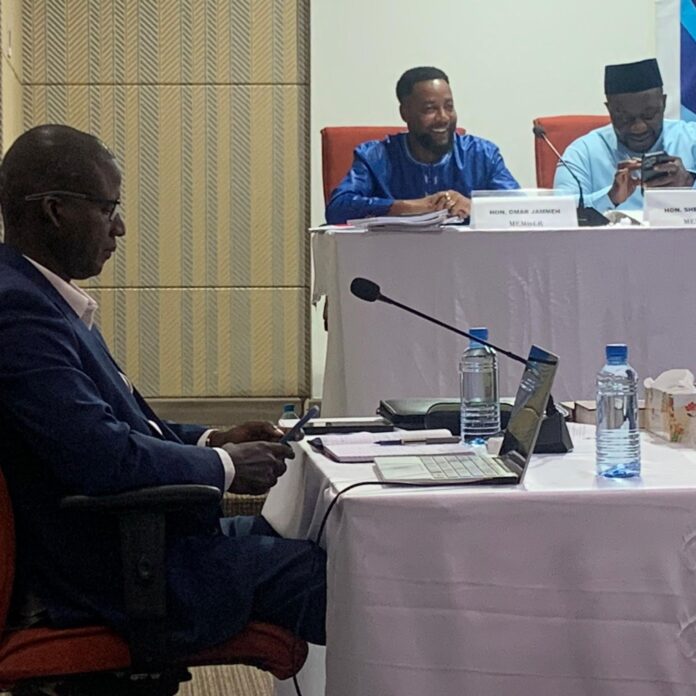Written by: Mama A. Touray
Alhaji Mamadi Kurang, former Secretary to the Janneh Commission, on Wednesday, July 16, appeared as the second witness before the National Assembly Special Committee investigating the sale and disposal of assets identified by the Janneh Commission. His testimony focused on his appointment, mandate, and terms of reference.
Speaking on how he was appointed, Kurang explained that the position of Secretary required a candidate who met specific criteria: someone who had not worked under former President Yahya Jammeh, had not lived and worked in The Gambia throughout the 22 years of Jammeh’s rule, was not a direct victim of the regime, and possessed a strong understanding of governance systems and potential commission findings.
“I am a chartered accountant with a degree in economics and 20 years’ experience. I understand how the system works. On this basis, the Attorney General told me I had been identified and recommended for the position, and asked if I would accept,” he said.
Regarding preliminary meetings, Kurang stated, “There was a meeting I had with the Chairperson and the two Commissioners. The purpose was to help us understand what a commission of such magnitude would involve. During this meeting, we discussed what we needed in terms of staff, nomenclature, and the roles of the Commissioners, Secretary, and Counsel.”
He noted that the meeting served as an initial briefing before formal work began. Kurang confirmed that he still had a copy of the meeting minutes dated 17 July 2017, held at Djembe Hotel and attended by the two Commissioners and the Chairperson.
Outlining what was discussed, he explained, “We urgently needed support staff, recording equipment, stationery, and a venue—which was to be arranged by the Attorney General. We also discussed distributing copies of the Terms of Reference and outlined other logistical requirements.”
He said the Commissioners agreed to hold sittings from Monday to Thursday, with Fridays reserved for internal housekeeping.
Describing his role at the time, Kurang stated, “The Secretariat was my unit. I worked under and reported to the Chairperson. The Lead Counsel had both State and non-State attorneys, along with investigators and proofreaders. As Secretary, I also served as the liaison between the Secretariat and the Lead Counsel.”
He added that the Commissioners did not directly engage with the public. “I was made to understand that, to avoid prejudice, the Commissioners should not receive direct information. As the administrator for the Commissioners, all information came through me, and I determined what should be passed on and to whom.”
Kurang recounted a conversation with the Lead Counsel about his responsibilities. “She told me some information was for me only. I responded that all information should be available to the State or the public. She then told me, ‘When we enter the hall, you will be mute,’ and I replied, ‘Maybe one day I’ll get a chance to speak.’ That’s when I understood that the Secretary does not speak during hearings,” he explained.
He also testified that he had a small office where all staff were based and reported to him. “Any issues they had were brought to me, and I took them to the Commissioners because I sat with them. I personally recruited two staff members who stayed with me throughout my tenure, and I covered their expenses.”
He concluded by noting that although staff occasionally received instructions from the Attorney General, all Commission-related matters were ultimately reported to him. “Sometimes staff would say the AG asked them to type something for two days, but for all Commission matters, they reported directly to me,” he said.




